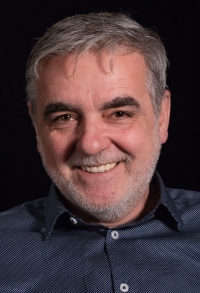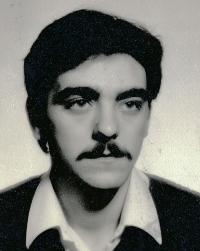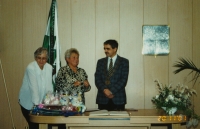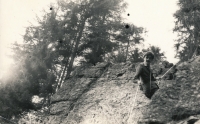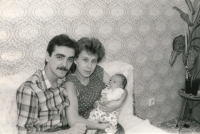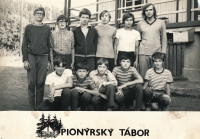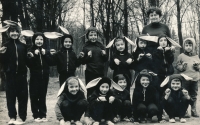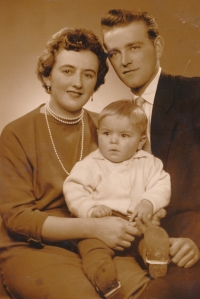They called us threshers, but it was a job like any other

Stáhnout obrázek
Jan Slezák was born on April 13, 1961 in Litomyšl. He lived with his parents and two younger siblings in Česká Třebová. The witness experienced the Warsaw Pact troops as a seven-year-old, but politics had never influenced his childhood, they never spoke about it at home. After graduating in 1980, he decided (partly out of spite his father) to go to the Public Security SNB. He completed five-month replacement service with the troops of the Ministry of the Interior in Frýdek-Místek and then eighteen-month training in the emergency regiment in Prague-Hrdlořezy, which served as a police school. He planned to enter the criminal service after graduation, but after the training he stayed with the emergency regiment. He joined the Communist Party and as Deputy Commander of the platoon with the rank of commissioned officer, then supervised the education and training of adepts, which focused on interventions against demonstrators and terrorists, the closure and evacuation of areas, etc. The year later he was in charge of platoon. As a reward for good performance he received the rank of commissioned officer soon. The first real intervention of his unit against demonstrators came in August 1988 at Prague‘s Wenceslas Square, then he intervened also during Palach‘s week in January 1989 and autumn 1989. He took part in the intervention on November 17, 1989 only in reserve, his unit was on a training. After the revolution, the Emergency Regiment changed to the Secondary Police School, Slezák became deputy commander of that year. He was involved in police unions, and left to civilian life at the end of 1995 with the rank of captain. He joined the CSSD and worked in municipal politics. He became an influential figure of the Prague Social Democracy (mayor of the Prague district of Újezd nad Lesy, councilor at the Prague city council, chairman of the ČSSD Prague 14 district organization), and resigned from political positions in 2018.
